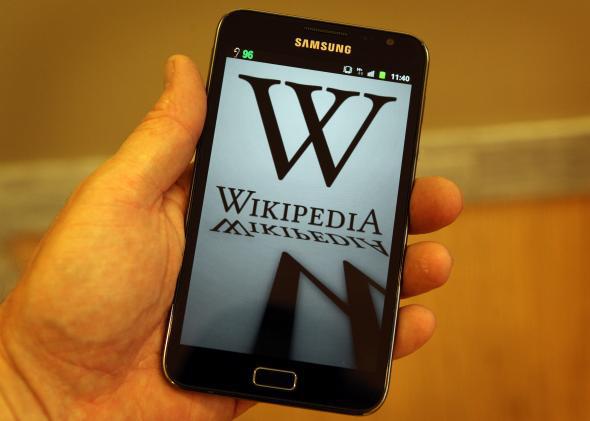In 2012 Wikipedia endured a voluntary 24-hour blackout to advocate for a free and open Internet. It made a powerful statement, but probably the biggest accomplishment was simply reminding everyone of just how often they consult the site. And such a prominent source of information needs to be accurate.
The Wikimedia Foundation, the nonprofit that runs Wikipedia, is worried, though, that editors are being paid to write biased content. PR people or anyone looking to manage an aspect of public perception might take to Wikipedia to talk someone up, disparage an opponent, or generally frame information in an advantageous way. And this could be misleading to the roughly 500 million users who visit Wikipedia each month and trust that everything was written by volunteers.
To improve the situation, Wikipedia is changing its terms of use so that people who are paid to edit articles have to disclose their conflicts of interest in their editor account. In a blog post announcing the change, the Wikimedia Foundation wrote, “We believe that undisclosed paid advocacy editing is a black hat practice that can threaten the trust of Wikimedia’s volunteers and readers. We have serious concerns about the way that such editing affects the neutrality and reliability of Wikipedia.”
Paid editing has led to weird situation like excessive promotion of Gibraltar, the British territory near the Mediterranean, on Wikipedia’s “Did You Know?” page. Gibraltar was featured on the page 17 times, more than any topic except the Olympics. And, as the Journal points out, a recent ad on a Wikipedia bulletin board offered thousands of dollars for someone to do “crisis management” of Banc de Binary’s Wikipedia page. The firm, which is based in Cyprus, has recently had legal trouble with U.S. regulators.
Additionally, a group of major PR firms, including Edelman and Ogilvy & Mather, announced last week that the participants agreed with a Wikimedia Foundation statement from October about paid editing and wouldn’t engage in surreptitious editing anymore. Though the agreement is a step forward, it came out of the blue for Wikimedia. Katherine Maher, Wikimedia’s chief communications officer, told the Wall Street Journal, “We didn’t know the PR firms’ statement was going to be published. No one from the foundation was consulted.”
It seems that PR firms may be participating in the agreement as a form of image control for themselves. Bill Beutler, the president of Beutler Ink, which is part of the no-edit coalition, told Ad Age, “There’s always a new case of someone getting their hand caught in the proverbial cookie jar. It’s been frustrating to me that whenever PR comes up in the news it’s because they’ve done something they shouldn’t.”
It will be a big victory for the Wikimedia Foundation if the revised terms of service and PR consortium succeed in reducing paid editing on Wikipedia. And within the volunteer editors’ community the discussion is ongoing. Plus Wikimedia seems to be handling its own PR pretty well with a simple and direct message. Maher told the Journal, “we’re not an advertising service; we’re an encyclopedia.”
